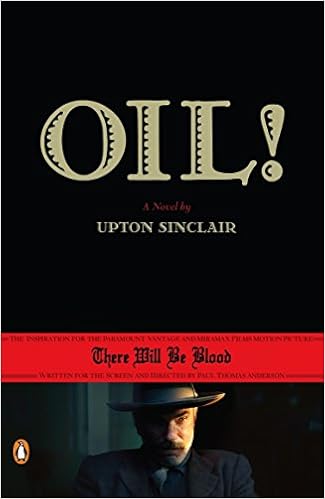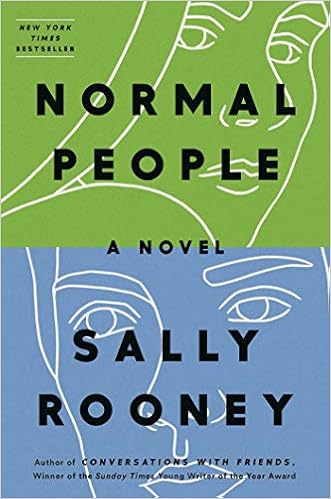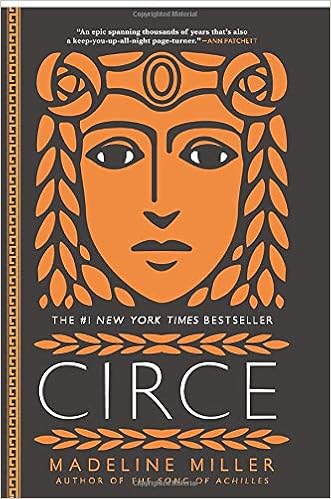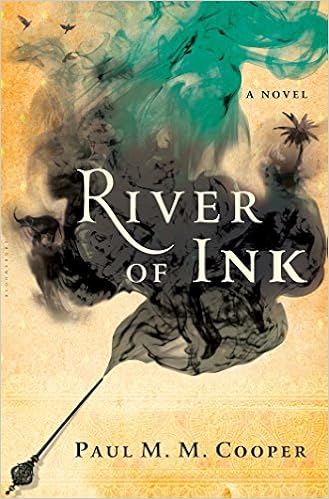You know the drill: protagonist Florent-Claude Labrouste doesn't like his cushy job, doesn't like his sexually adventurous girlfriend, and just plain doesn't like anything about life. He tries anti-depressants but they aren't really doing it for him, so rather than stay in his life and slowly suffocate, he cashes out his savings, lies to his boss about another job opportunity, and ghosts his girl to run off to a bucolic small-town nowheresville in order to do not much of anything. Flush with cash and freed of all responsibility, he stays in some hotels, reflects on the shabbiness of the much-vaunted but little-respected French countryside (it's always funny to me how unfond Houellebecq is of France), and then lodges with his old college friend Aymeric, a descendant of the Normans who's taken up the family business of farming on his inherited estate. The two have several discussions, informed by Houellecq's background in agronomy, about the seemingly irreversible economic decline of the idealized rural lifestyle due to the impersonal forces of globalization and European Union agricultural policy, which eventually leads Aymeric to participate in a sadly doomed protest against economic reforms that echoes the recent Yellow Vest protests that occurred just after this book was published.
Most importantly, while staying with Aymeric, Labrouste is overcome with regret at the long-ago collapse of his relationships with two women (melancholy Houellebecq is the best Houellebecq, he's able to perfectly capture the subtleties of mourning for things beyond recovery). He blames himself for these failures, but though his youthful romance with Kate has affected him deeply, it's his love affair with Camille that actually meant something profound to him. He becomes obsessed with the idea of reanimating their romance by murdering the child she now has and then "coincidentally" running into her, which would theoretically correct his mistakes and let him start anew by rebuilding what they once had. On the very cusp of going through with his deranged plan, as he has Camille's son in his rifle sight, he realizes, more out of despair than morality, how foolish, cruel, and most importantly futile this action would be. The past is dead, ultimately you have no one but yourself to blame for your failures, sometimes there is no fixing what's been broken, and there's truly no point in trying to either bring back what has ended or to farcically continue what isn't fulfilling. Even if you can't bear the present and have no hope for the future, you won't find any answers in reviving the past.
And that's what the book is about: coming to terms with your own failures, and the absence of second chances at some of the most important things in life. Serotonin is the chemical responsible for producing happiness, we are told, and once the narrator realizes that he's been reduced to artificially obtaining it from little white pills that will inevitably stop working someday, he's left with some grim realizations about what kind of life he can look forward to: "The most undesirable side effects most frequently observed in the use of Captorix were nausea, loss of libido and impotence. I have never suffered from nausea." This is almost certainly indicative of Houellebecq's own life in some way (to a greater degree than as usual in his novels, anyway), especially because there's a lot of discussion towards the end about the relationship between art, particularly literature, and sex. Houellebecq has never had a high regard for his own profession, and in his trademark style of smut + cynicism has the definitive opinion that all of the high-minded ideals of the great novelists are worthless in the face of the logic of sexual desire, which is worth a lengthy quote:
For a long time I had planned to read The Magic Mountain by Thomas Mann; I had a sense that it was a gloomy book, but that suited my situation and it was probably time. So I dived into it, at first with admiration, then with mounting reservations. Even though its range and ambitions were considerably greater, the ultimate meaning of the work was basically the same as Death in Venice. No more than that old imbecile Goethe (the German humanist with a Mediterranean inclination, one of the most sinister dotards in the whole of world literature), no more than his hero Aschenbach (broadly more sympathetic, however), Thomas Mann, Thomas Mann himself – and this was extremely serious – had been incapable of escaping the fascination of youth and beauty, which he had in the end placed above everything, above all intellectual and moral qualities, and in which, at the end of the day, he too, without the slightest restraint, had abjectly wallowed. So the whole of the world's culture was pointless – the whole of the world's culture provided no moral benefit and no advantage – because during those same years, exactly those same years, Marcel Proust, at the end of Time Regained, concluded with remarkable frankness that it was not only social relationships that supplied nothing substantial, friendships didn't either, they were quite simply a waste of time; and that what the writer needed was not intellectual conversations, contrary to popular belief, but 'light affairs with young girls in bloom'. At this stage of the argument, I am keen to replace 'young girls in bloom' with 'young wet pussies'; that would, it seems to me, contribute to the clarity of the debate without detracting from its poetry. (What could be more beautiful, more poetic, than a pussy that is starting to get wet? I ask you to think about that seriously before giving me an answer. A cock beginning its vertical ascent? There are arguments in favour. It all depends, like so many things in this world, on the sexual point of view that one adopts.)The entire armature of theory around the production, consumption, and analysis of literature is wrongheaded, openly meaningless and beside the point. This makes it perhaps a bit easier to understand certain artistic choices that Houellebecq has made here, as it's difficult to actually internalize this profound point and then blithely continue to write afterwards. There is a glancing reference to Gogol's superb novel Dead Souls, which doesn't appear to mean anything, but in my mind the true reference point is Camus, who goes unmentioned, even though the entire novel can be seen as a dramatization of Camus' famous statement in The Myth of Sisyphus that the question of suicide was the only real philosophical problem that existed.
Marcel Proust and Thomas Mann, to return to my subject, might have had all the culture in the world, they might (in those impressive early years of the twentieth century, which summarised eight centuries and even a bit of European culture all by themselves) have been at the head of all the knowledge and intelligence in the world, they might respectively have represented the peak of French and German civilisation – that is to say, the most brilliant, the most profound and the most refined cultures of their time – but they were at the mercy of, and ready to prostrate themselves before, any wet young pussy or any valiantly upright cock – according to their personal preferences, Thomas Mann remaining undecided in this respect, and Proust being somewhat vague as well. The end of The Magic Mountain was thus even sadder than a first reading suggested; it didn't just signify, with the two highest civilisations of the day rushing, in 1914, into a war as absurd as it was bloody, the failure of the very idea of European culture; it signified the final victory of animal attraction, the definitive end of all civilisation and of all culture. A Lolita could have made Thomas Mann lose his marbles; Marcel Proust would have crushed on Rihanna; these two authors, the crowns of their respective literary cultures, were not, to put it another way, honourable men, and we would have had to go further back, probably to the start of the nineteenth century, to the days of early Romanticism, to breathe a healthier and a purer air."
Houellebecq's way of approaching this issue almost couldn't be more different than that of Camus - Camus' idea of a shock to the conscience leaned more to the purposeless murder in The Stranger than to the stupid bestiality and pedophilia references here - but the protagonist's quest for a final answer to himself about what makes life worth continuing is precisely in that vein. Houellebecq has a much more dismal conclusion, however. One of the more interesting aspects of Submission was the main character's fruitless attempts to find answers in Christianity, under the theory that no amount of material comfort can soothe a spiritual ache. Though that novel definitively concluded that there was nothing there, here Houellebecq concludes with a poignant reminder in the language of the New Testament that unhappiness is often chosen; people are entirely capable of pursuing the most self-destructive paths with fervor and aplomb, and that ultimately the true source of our dissatisfaction in a universe overflowing with wonder lies in the mirror:
God takes care of us; he thinks of us every minute, and he gives us instructions that are sometimes very precise. Those surges of love that flow into our chests and take our breath away – those illuminations, those ecstasies, inexplicable if we consider our biological nature, our status as simple primates – are extremely clear signs.
And today I understand Christ's point of view and his repeated horror at the hardening of people's hearts: all of these things are signs, and they don't realize it. Must I really, on top of everything, give my life for these wretches? Do I really have to be explicit on that point?
Apparently so.
















